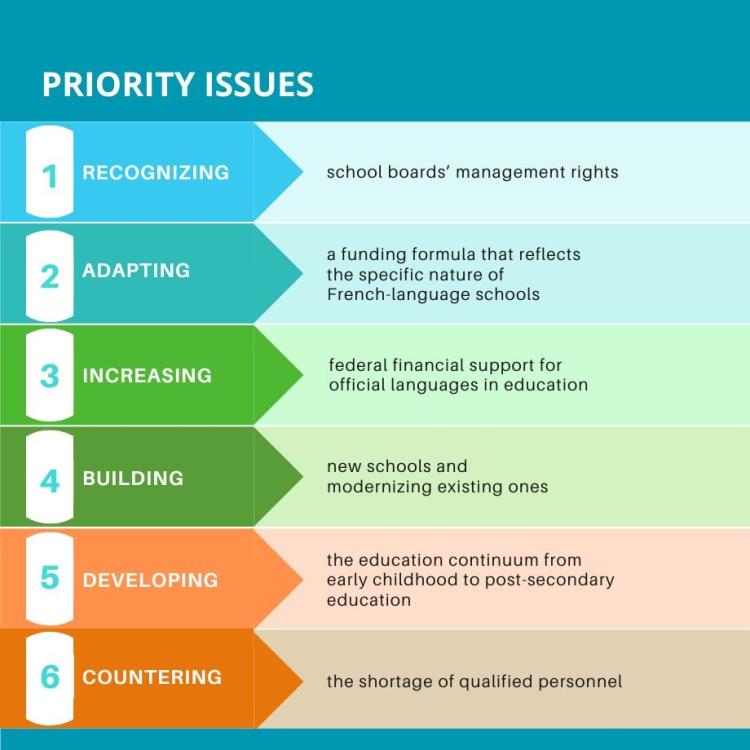The Fédération nationale des conseils scolaires francophones (FNCSF) believes that the prorogation of the House of Commons and the upcoming federal elections should not hinder the continuation and conclusion of the study on the educational continuum in the minority language, initiated by the Standing Committee on Official Languages.
As part of this study, more than twenty francophone school boards, either individually or through their provincial association, have outlined the main challenges they face in meeting the growing demand for their student populations.
The FNCSF has echoed these testimonies while proposing solutions in its brief to ensure that educational services offered to francophone minority students are truly equivalent to those provided to the anglophone majority.
Despite a 20% growth over the past 10 years, bringing the number of students to nearly 180,000, many eligible children still do not attend French-language schools due to systemic barriers, including chronic underfunding that hinders the construction and renovation of local schools.
Six measures to complete and strengthen the educational continuum

A call to action for welcoming, accessible, and valued schools across the country
The FNCSF reaffirms the importance of resuming the work of the Standing Committee on Official Languages as soon as possible within the framework of its study on the educational continuum.
Simon Cloutier, President of the FNCSF, emphasizes: "The federal government has committed, through the Official Languages Act, to supporting the educational continuum for linguistic minorities. Every eligible child living in a minority context should have access to educational services in French from early childhood to adulthood. The accessibility and availability of these services are compromised by the underfunding of education in French as a first language. Strengthened multi-party collaboration between federal and provincial/territorial governments is necessary."
The annual French-language education awareness days at the beginning of February will provide an opportunity for parliamentarians to meet with the FNCSF to discuss these educational issues. Now more than ever, the FNCSF calls for collective mobilization to invest in modern infrastructure and high-quality educational resources, which are key to an inclusive and dynamic future for the Canadian Francophonie.













